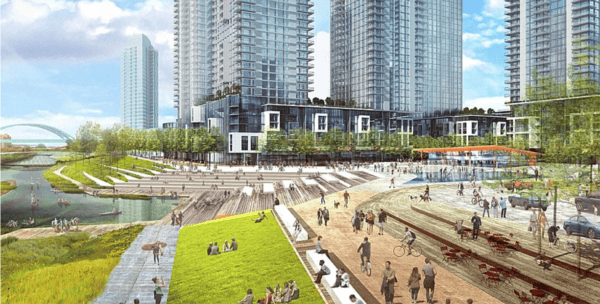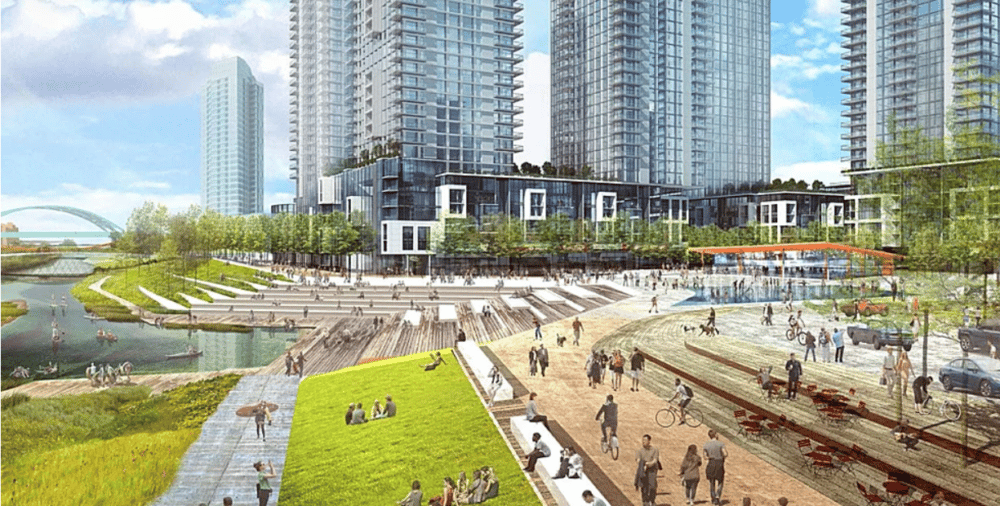
The developer of a massive planned community called the "River Mile," which would eventually replace Elitch Gardens and its surroundings with a new urban center, said it could eventually be home to up to 15,000 residents, but construction could take decades.
Rhys Duggan, CEO of Revesco Properties, made the comments in response to a question about the development's size at a community meeting last week with Jefferson Park residents.
The residents in the neighborhood just across the highway from the planned development have long seen such changes coming, as the close proximity to downtown is one of the leading draws to the area, according to Michael Guiietz of Jefferson Park United Neighbors.
He would like to see more information beyond the conceptual drawing plans for River Mile. He would oppose a “butcher block-style development” and hopes porosity will be a priority as he would still like sunlight to be able to peek through the potentially 20-story buildings added to skyline.
Revesco still has many parts of the development plan to finalize, including zoning, building height restrictions, and parking structures.
Duggan expects plenty of demand for his project: The metro region could draw a million new residents over the next 20 years, he said. However, he reiterated the project’s flexible timeline for completion, saying, “Development follows demand.”
Duggan expects to see zoning changes for the plan take place at the end of this year, followed by infrastructure master planning. The project would start on the parking lots surrounding the amusement park.
The amusement park would be demolished and rebuilt elsewhere later in the project's timeline, which could stretch across 25 years.













